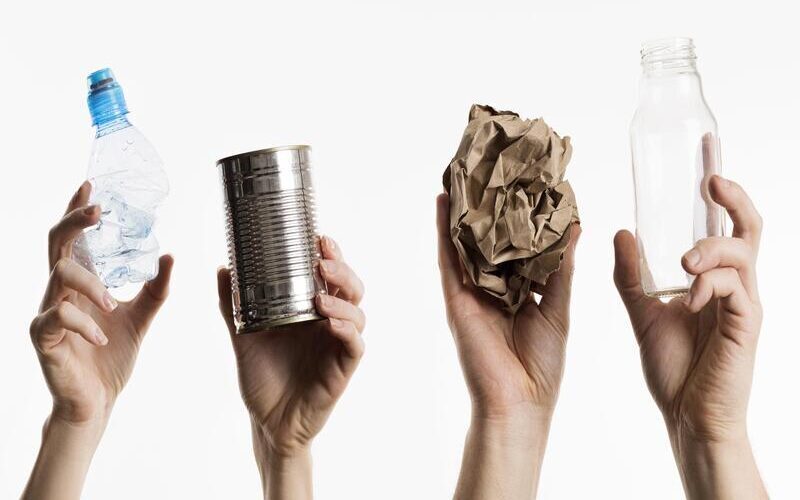Protecting the environment? A must!
We are obliged by law to take steps to reduce our environmental impact. We keep abreast of current national and European legislation on waste and environmental management. Our Health, Safety, Fire and Environmental Officer is responsible for compliance, as is our Supply Chain Management and Central Warehouse.
How exactly does this work and how do we go about changing the way we manage waste?
The Health and Safety Department keeps us up to date with the regulations and tells us what we need to do to comply with them – says Violetta Podhorodecka, Senior Warehouse Manager at Novita S.A. – The involvement of all departments is needed here, not just the warehouse. Both production and maintenance generate their own waste and not all of it goes through us. Regulations and operating rules must therefore be known by everyone who has to deal with waste and by-products.

Disposal or recycling?
Both recyclable waste and packaging waste, such as film, big bags or coopers, are generated at our factory and reprocessed by external companies for further production. For example, mops and materials used in the furniture industry are made from packaging.
How do we manage waste and by-products? We use the BDO system, in which we are registered, to efficiently optimise our processes for their disposal. BDO, the database for products and packaging and waste management, manages waste in accordance with current legislation.
All types of waste and packaging are collected separately, weighed accurately and then processed as appropriate. The waste is then collected by specialised companies in accordance with the waste catalogue, while the packaging is recycled by the appropriate recycling organisation. Nonwovens with reduced quality properties are also sent for further production. Some of the nonwovens classified as by-products are reprocessed in the production process to recover the raw material for further production. On the other hand, edge trimmings are used to make mops.
We also encourage our employees to recycle! Paper, glass and plastic bins and containers allow us to separate waste in our offices and factories.
Reduced water consumption
In addition to the efficient waste management required by law, we also take internal environmental measures. We are proud of the innovations we have introduced in our spunlace nonwoven production lines.
In this process, the working medium that binds the individual fibres together is process water, which circulates in a closed circuit. It is drawn from our own deep well. The advanced process water filtration system has a direct impact on reducing water intake and losses. As a result, up to 90% of our production needs are met with recirculated, reusable water.
Intelligent transport management
So we look after water and the products we use in our internal processes, but we also act externally. The SOOT system, a supply chain management programme, helps us reduce our carbon footprint. It not only allows us to improve the efficiency and accuracy of our deliveries. With access to an order exchange, we have greater control over our supply chain and can avoid building up our own fleet of vehicles. In this way, we help to reduce the number of lorries on European and global roads, thereby reducing our carbon footprint.


